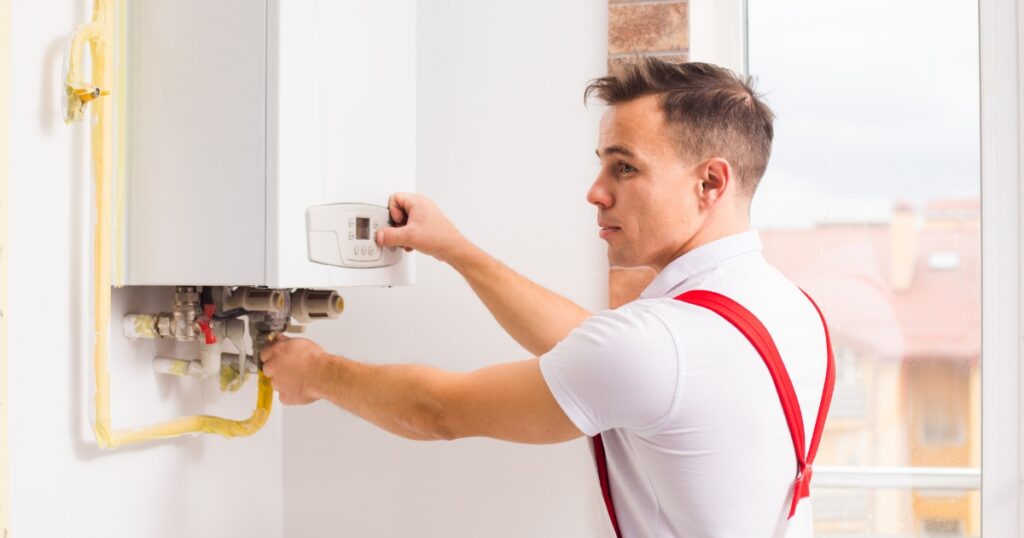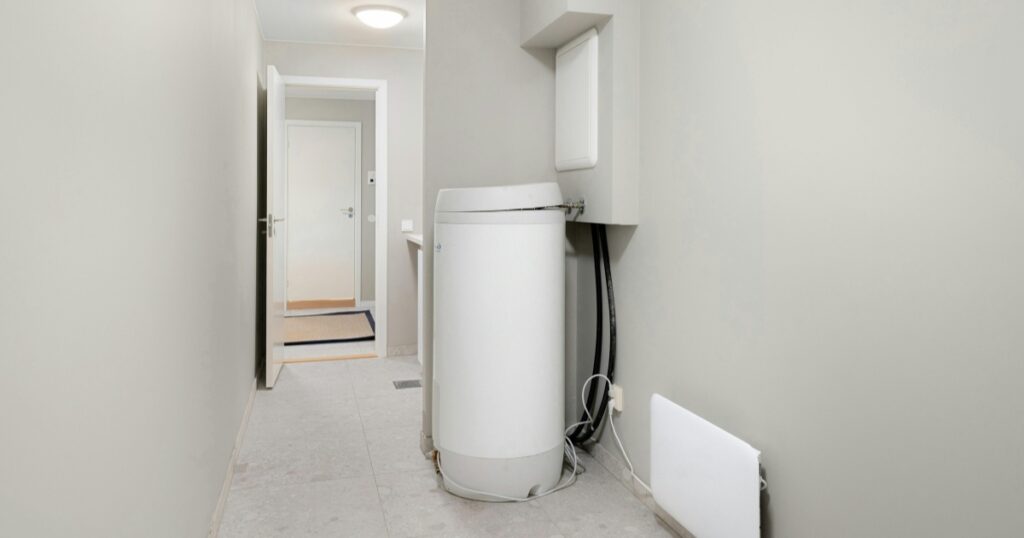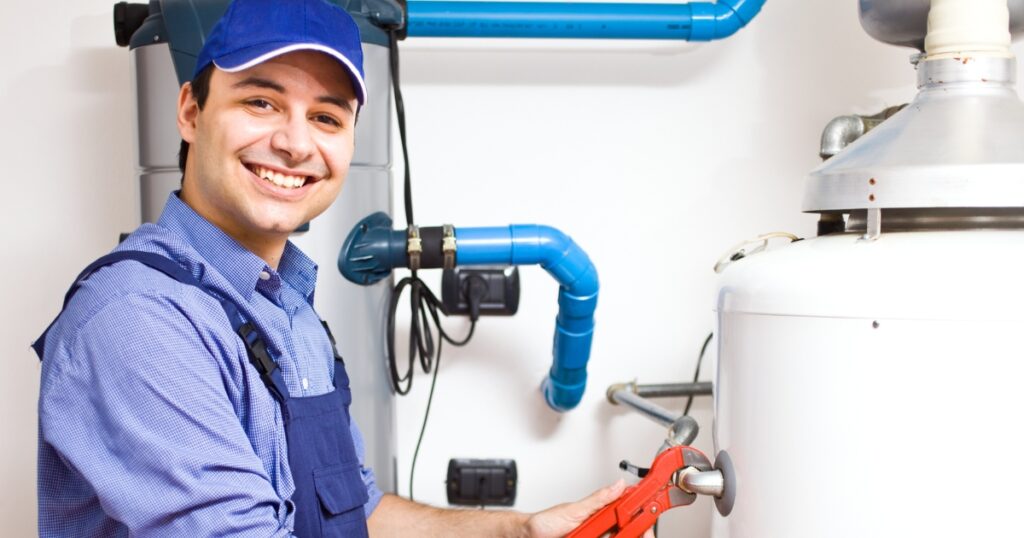Have you noticed your hot water service isn’t up to scratch lately? You’re certainly not the only one; we’ve been through it ourselves and understand just how annoying that can be.
We’ve done a fair bit of digging on this issue and have found some solid solutions for mending or swapping out dodgy hot water service check valves. This yarn will walk you through pinpointing, sorting out, or figuring out when getting a new one is your best bet for a bung valve.
Key Takeaways
- Checking and servicing the TPR valve regularly is vital to prevent your hot water system from breaking down.
- Look out for signs like rust stains, inconsistent water temperature, and unusual noises, as these could mean it’s time to repair or replace the check valves.
- Tightening loose valves and replacing damaged gaskets can often fix common issues with hot water systems.
- When repairs no longer do the trick, replacing your faulty check valve might be more cost-effective for ensuring safety and efficiency.
- Always choose a trusted plumber who has experience with hot water systems for any repair or replacement jobs to keep your system running smoothly.
Understanding Hot Water Service System Check Valves
The TPR valve serves the critical function of releasing pressure to prevent a hot water system from exploding. Signs such as persistent leaking or excessive temperature fluctuations may indicate a faulty check valve.
Purpose of the TPR valve
The TPR valve, or Temperature Pressure Relief valve, plays a crucial role in our hot water systems. It acts as a safety device designed to release water and lower pressure if either gets too high inside the tank.
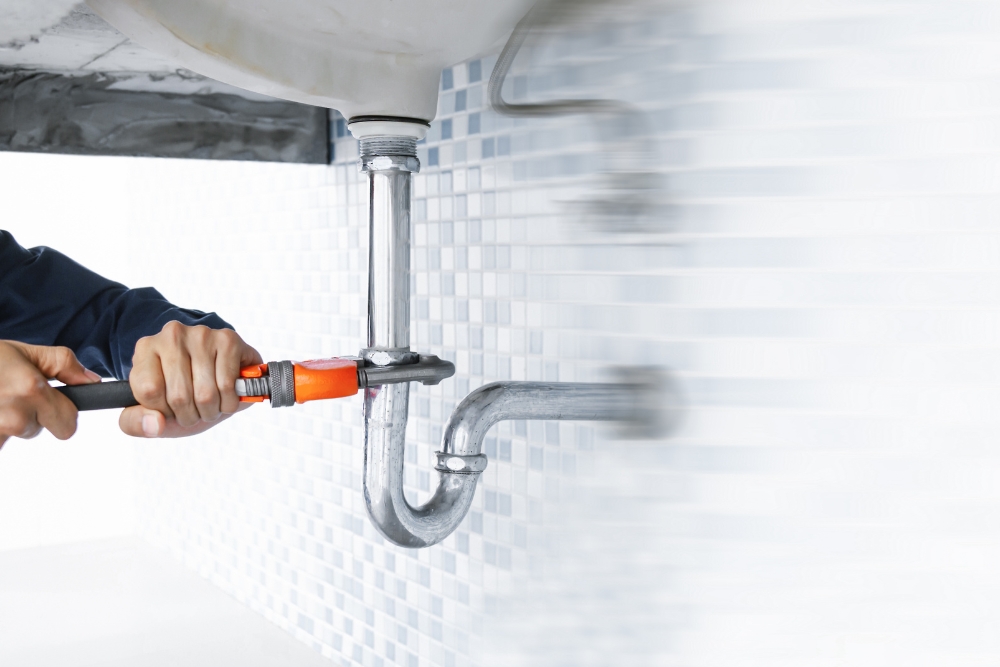
This feature prevents potential damage to the system and avoids the risk of explosions, keeping our homes safe from harm.
We often overlook this component until we face issues like no hot water or leaking valves. Regular maintenance and timely TPR valve replacement are essential parts of ensuring our hot water systems operate effectively and safely.
Ignoring signs of wear could lead to more significant problems, including damage to the water heater itself or even property damage from leaks or bursts.
Signs of a faulty check valve
- A leaking TPR valve may indicate high pressure or overheating within the hot water system.
- Rust stains around the TPR valve or on the tank could signal a faulty check valve, potentially leading to more significant issues if left unaddressed.
- Unusual noises such as hissing, popping, or rumbling coming from the hot water system can suggest an issue with the check valve.
- Inconsistent water temperature or fluctuations in hot water pressure indicate potential problems with the check valve.
- Water pooling around the base of the hot water heater may be a sign of a faulty check valve and requires immediate attention to prevent damage.
Repairing Hot Water System Check Valves
Ensure to fasten loose valves and replace faulty gaskets as part of regular maintenance to keep your hot water system in good condition. Trust a trusted and experienced plumber for prompt repairs and replacements when dealing with check valve issues.
Fastening loose valves
If you notice that the valves on your hot water system are loose, it’s essential to fasten them immediately. Loose valves can lead to leaks and affect the overall efficiency of your system.
You can tighten the valves using a wrench or pliers, ensuring that they are secure and not over-tightened, which could cause damage.
Regularly checking and tightening loose valves is crucial for preventing potential water damage and maintaining the proper functioning of your hot water system. This simple maintenance task can help extend the lifespan of your system and save you from costly repairs in the future.
Replacing faulty gaskets
After fastening loose valves, the next step in repairing a faulty hot water system check valve is replacing any faulty gaskets. Faulty gaskets can cause leaks and compromise the functioning of the check valve, leading to potential water damage if left unaddressed.
When dealing with faulty gaskets, it’s essential to ensure that you use high-quality replacement parts that are compatible with your specific hot water system model to prevent future issues.
Regularly inspecting and replacing faulty gaskets will help maintain the integrity of your hot water system and prevent unnecessary leaks or malfunctions.
When considering whether to repair or replace a fault, remember that consulting with a professional plumber will provide valuable insight into the best course of action for your particular situation.
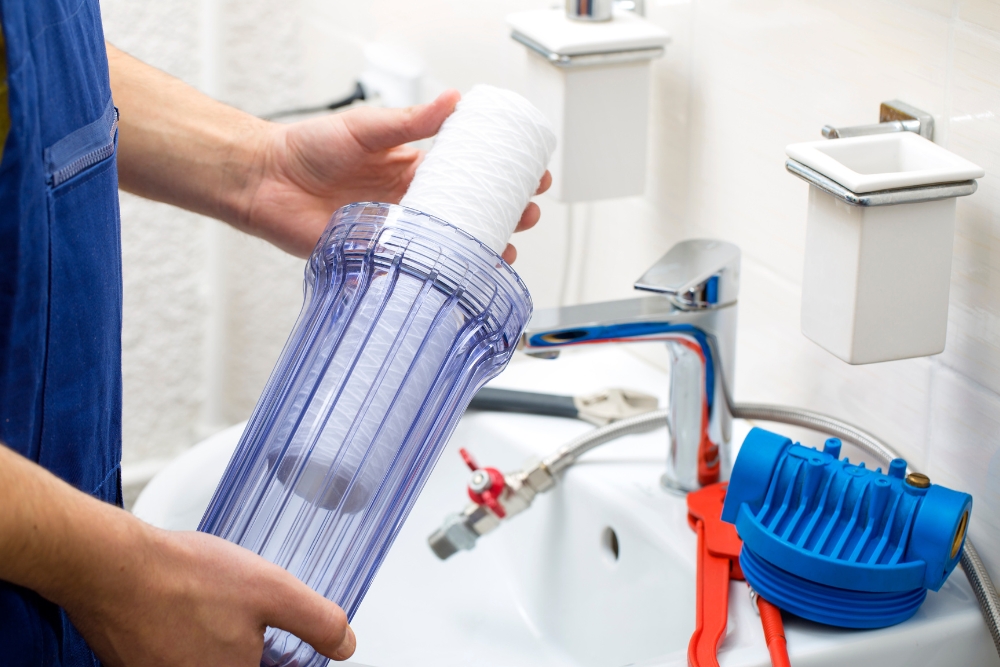
When to Replace Hot Water System Check Valves
Signs that indicate replacement may be necessary include persistent leaks, inconsistent water temperature, or unusual noises coming from the hot water system. Upgrading to a new valve is beneficial for improved safety and efficiency of the hot water system.
Signs that replacement may be necessary
When considering the signs that replacement may be necessary for your hot water system check valves, it is essential to keep an eye out for the following indications:
- Rust or corrosion on the valve: This can indicate wear and tear, leading to potential leaks and malfunctions.
- Inconsistent water temperature: If your hot water system is struggling to maintain a consistent temperature, it could be a sign of a faulty check valve.
- Water leaks around the valve: Any signs of water leakage around the valve area should not be overlooked, as this can lead to further damage if left untreated.
- Unusual noises from the hot water system: Strange sounds such as rattling or knocking could suggest underlying issues with the check valves.
- Age of the system: If your hot water system is approaching or has exceeded its expected lifespan, it may be more cost-effective to opt for a replacement instead of continual repairs.
- Inadequate hot water supply: A decrease in the amount of hot water being produced can signal problems with the check valves that may require replacement.
- Excessive sediment buildup: Accumulation of sediment within the system can be indicative of issues with the valves and may necessitate replacement for optimal functioning.
By recognising these signs early on, you can make informed decisions about whether repairing or replacing your faulty hot water system check valves will be most beneficial for your home.
Benefits of replacing instead of repairing
When deciding between repairing or replacing a faulty hot water system check valve, there are several benefits to consider. By opting for a replacement instead of repairing the valve, you can ensure improved efficiency and performance of your hot water system.
Additionally, a new check valve can provide increased reliability and reduce the risk of further issues arising in the future. This decision may also lead to long-term cost savings by minimising the need for frequent repairs and maintenance.
Replacing the faulty check valve rather than repairing it offers an opportunity to upgrade to a more advanced model that incorporates modern technology and features. Newer valves often come with enhanced safety measures and energy-efficient characteristics, contributing to overall peace of mind for homeowners.
Extend the Lifespan of Your Hot Water System
Regular maintenance and care can significantly extend the lifespan of your hot water system. Properly maintaining your system and promptly addressing any issues that arise will help avoid costly repairs or replacements in the future.
Tips for keeping your hot water system in good condition
To keep your hot water system in good condition, follow these tips:
- Check for rust stains around the tank and on the water heater as they indicate potential issues.
- Regularly test the water flow and pressure to ensure efficient operation.
- Listen for unusual sounds coming from the hot water system, as loud noises could be a sign of a problem.
- Inspect for any leaks around the hot water system that may lead to damage if left untreated.
- Keep an eye out for a cracked tank or damaged pipes which can impact the performance of your hot water service.
These simple steps can help you identify potential issues early and prevent costly repairs or replacements down the line.
Importance of regular maintenance
Regular maintenance is crucial for keeping your hot water system running efficiently. Checking and servicing the TPR valve, pressure relief valve, and other components can help prevent issues before they escalate.
By scheduling routine inspections with a qualified professional, you can identify potential problems early on and ensure that your hot water system continues to function optimally.
Maintaining your hot water system regularly not only extends its lifespan but also reduces the risk of unexpected breakdowns. Regular upkeep can save you from costly repairs in the long run and keep your home’s hot water supply uninterrupted.
Finding Reliable Hot Water System Repair and Replacement Services
Finding reliable hot water system repair and replacement services is crucial for ensuring the longevity and efficiency of your hot water system. Look for a trusted and experienced plumber who can provide prompt repairs and replacements when needed.
Choosing a trusted and experienced plumber
When seeking a trusted and experienced plumber for your hot water system repair or replacement, it’s essential to consider their qualifications and experience in handling similar issues.
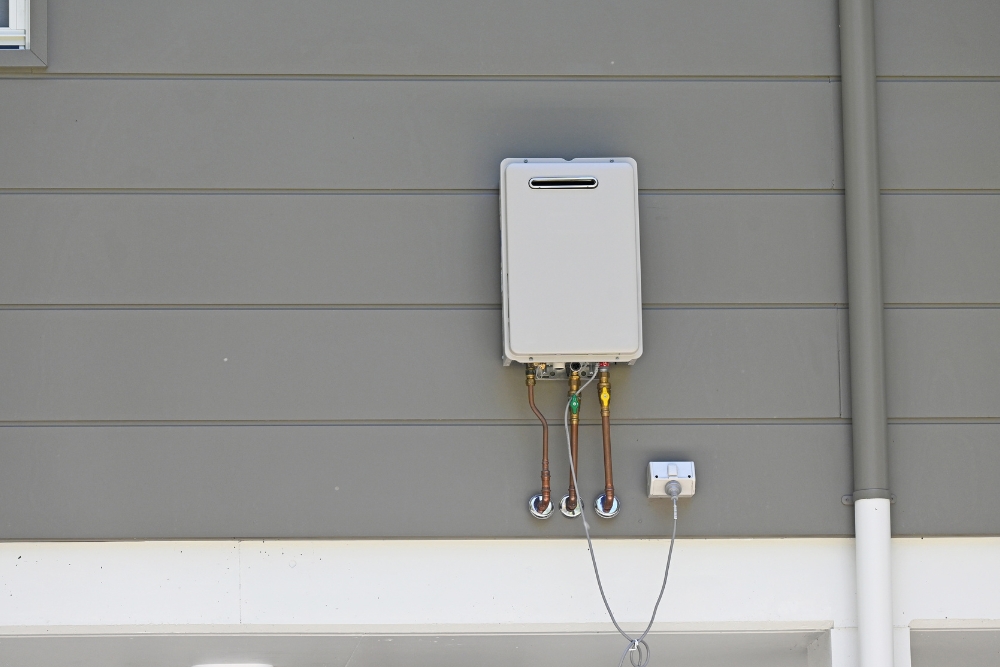
Look for a licensed and insured professional who specialises in hot water systems, ensuring they have the expertise to diagnose the problem accurately and provide efficient solutions.
Additionally, consider their reviews and customer feedback to gauge their reliability and quality of service. By choosing a reputable plumber with relevant experience, you can ensure that your hot water system is in good hands.
Importance of prompt repairs and replacements
Choosing a trusted and experienced plumber is crucial for ensuring that prompt repairs and replacements are carried out when necessary. Ignoring issues with your hot water system can lead to further damage, higher repair costs, and potential safety hazards.
Prompt attention to faulty check valves and other hot water system components can prevent extensive leaks, water damage, or even electrical malfunctions that could pose a risk to your household.
Regular maintenance and early detection of problems through professional inspections are key to preventing the need for major repairs or replacements. It’s important to address any concerns as soon as they arise rather than procrastinating, as this proactive approach can help maintain the efficiency and longevity of your hot water system while keeping repair expenses in check.
Quick and Reliable Hot Water Repairs for You!
Keep your hot water system functioning optimally by promptly addressing any faulty check valves. Fasten loose valves and replace faulty gaskets to repair the system efficiently. Monitoring signs of wear and tear will help you decide when it’s time to replace the check valves rather than repairing them.
Regular maintenance is crucial for extending the lifespan of your hot water system, so don’t overlook its importance. Choosing a reliable plumber for repairs or replacements is vital in ensuring the long-term functionality of your hot water service.
Is your hot water system experiencing issues with check valves? Don’t let faulty check valves disrupt your hot water supply. Contact Hot Water Repairs Today for prompt and reliable repair or replacement services.



